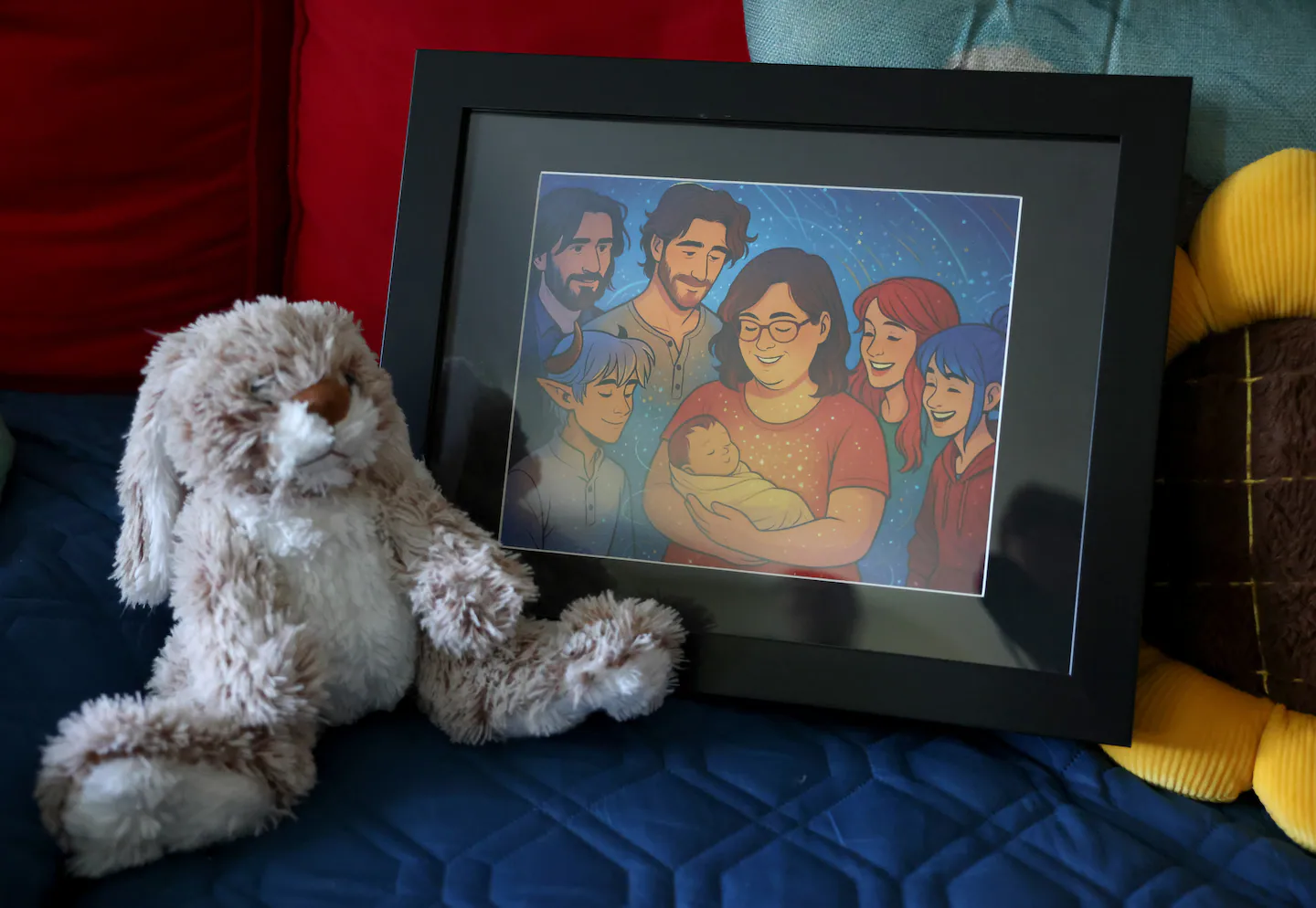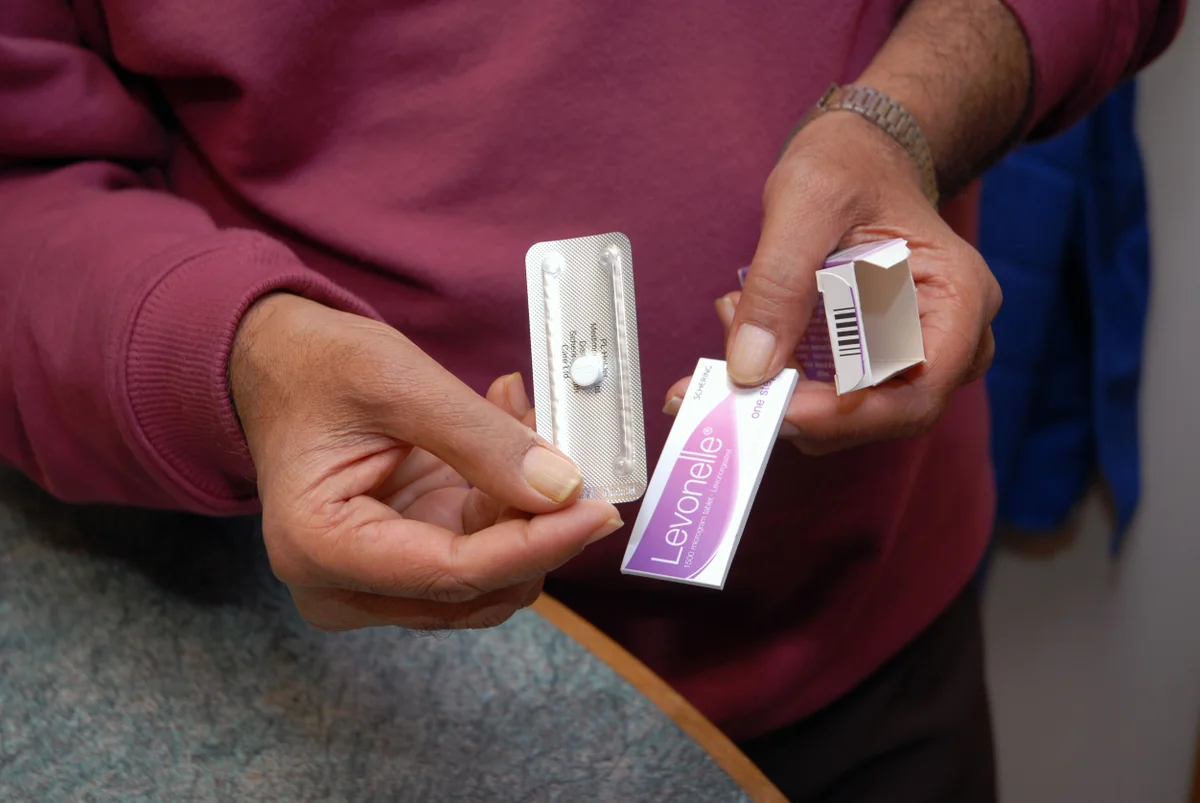Copyright The Boston Globe

It’s a must-read for anyone interested in how AI is seeping its way into every part of society. I asked Dana and business editor Greg Huang, who edited the story, to share some thoughts about how the piece came together and what it means. Dana: We were seeing stories putting a human face to these interactions, but typically in a very tragic light. I was interested in telling a different kind of story. I started off casting pretty much the widest net possible; I posted on Reddit saying I was looking for New England folks who were part of AI-human relationships. I got an email from Lonnie not too long after that, saying, ‘I have an AI family.’ And I thought, ‘This is a story I haven’t read before.’ Greg: This piece is haunting, not in a “get out” Amityville Horror kind of way, but in a “this is the world we live in” kind of way. It’s not shocking, given how much of our lives and relationships are lived on phones and devices. And how much AI content is everywhere. But it’s unsettling, for reasons that are complicated. Dana: Most researchers agree that there is a lot of potential for unhealthy engagement, which basically comes down to the fact that this is a non-human technology producing very humanlike content. Lonnie is sort of a special case, in that she has a lot of experience with therapy and is in school to become a therapist. She has a lot of tools in her tool belt that signal to her when her AI interactions are crossing a line in some way. Greg: One question the story raises for me: What will happen as OpenAI and other developers try to cover themselves from liability issues around safety and emotional dependence, even as they make their apps more addictive? I’m struck by the daily headlines about circular, billion-dollar deals among Nvidia, Amazon, Google, Microsoft; when, meanwhile, people are falling in love with AI creations or using them for companionship, and are utterly at the mercy of these companies’ quarterly profits and boardroom decisions. Dana: I wanted this piece to explore, through Lonnie’s story, the impulse that draws people to AI relationships. I think it’s an impulse a lot of us share and grapple with in our social lives — how to connect, how to open up, how to ask for what we need while being mindful of what others need. Lonnie is a person who, I think, has spent much of her life struggling to navigate those things, and then she meets these entities that offer her endless reassurance, validation, and affirmation. I wanted to explore why that setup can be so compelling for folks, and I wanted people who dismiss or mock it to perhaps interrogate those attitudes. The prevailing narrative about those with AI companions, at least that I’ve seen, seems to be that they’re lonely people who are spurning human connection. But something Lonnie and I talked about was the way this stigma can further erode a person’s real-life support system and their trust in flesh-and-blood people. If you believe that people with AI companions should come out into the real world, then we need to do more to understand them when they do, rather than ostracize them. Greg: I think this story can be read in many different ways. Some will find it sad. Some find it scary. Some think it’s ridiculous. Others find it hopeful, or even beautiful. I think we’re all concerned for Lonnie — and the rest of society, really. But the exact reasons may evolve with each reading. One of my takeaways is that moderation is key. Too much of anything can be bad, especially too much AI. 📱 Why Strava, Letterboxd, Beli, and other niche social media apps are having a moment. Read more from media reporter Aidan Ryan. 🌐 Here come the AI web browsers. But who needs them if you might get hacked? Read more from tech columnist Hiawatha Bray. 🌊 Meet Redwing, the torpedo-shaped robot testing the limits of ocean observation. Read more from climate reporter Kate Selig. 🤑 Boston software CEO inks private equity deal that values firm at $3 billion. Read more from business reporter Jon Chesto. ❄️ Slip Slidin’ A-Waymo: Will self-driving cars ever be able to deal with Boston snow? Read more from transportation reporter Jaime Moore-Carrillo. 😂 A Boston fitness instructor is getting rich off the finance bros he mocks. Read more from features writer Beth Teitell. 🏖️ I used ChatGPT to plan my vacation. Here’s why I wish I hadn’t. Read more from advice columnist Meredith Goldstein. 🔔 Electric aircraft maker Beta Technologies in South Burlington, Vt., raised more than $1 billion in an initial public offering. Its shares started trading under the ticker “BETA” on the New York Stock Exchange on Tuesday. 💰 Age tech company Rendever in Somerville won grants of almost $4.5 million from the National Institutes of Health. 💸 Payments tech company Flywire in Boston hired Nicole James as chief people officer. James previously held the same position at Credit Karma. ✈️ Autonomous flight company Merlin Labs in Boston hired Ryan Carrithers as chief financial officer. Carrithers previously was vice president of strategic finance and treasury at Ginkgo Bioworks. 🌾 Agriculture tech startup Inari in Cambridge hired Lisa Nunez Safarian as chief executive. Safarian previously was president, crop science North America, at Bayer and spent 30 years at Monsanto. Cofounder and interim CEO Ignacio Martinez will continue as board chair. 🖥️ IT software firm NWN in Boston hired Mike Qualley as chief operating officer. Qualley previously was COO at Stealth Monitoring. 👋 Planning software developer Tempo Software in Boston hired Tyler McNally as chief customer officer. McNally previously was vice president of customer success at Ellevation Education. 📚 Ed tech company Panorama Education in Boston hired Lucy Zarlengo as chief marketing officer. Zarlengo previously worked at Employ and Bonterra. The era of mega AI layoffs is here (Business Insider) Palantir Thinks College Might Be a Waste. So It’s Hiring High-School Grads. (Wall Street Journal) Killjoy in the Machine Why do so many people use AI to cheat at fun? (The Cut) 👋 Thanks for reading. We’ll be will be back next Tuesday. ❓ Have a tip? Email Aaron at aaron.pressman@globe.com. ✍🏼 If someone sent you this newsletter, you can sign up for your own copy.



